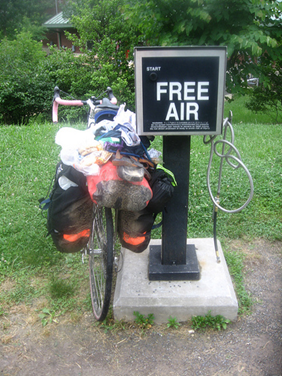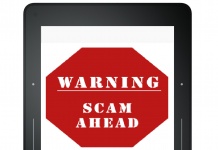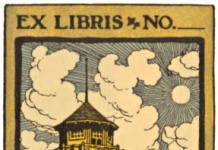 A novice self-publisher posted a question on MobileRead: Are readers more likely to check out a new author if the book is available for free?
A novice self-publisher posted a question on MobileRead: Are readers more likely to check out a new author if the book is available for free?
He got some great replies to his question. I read them with interest, and my own immediate reaction was, ‘Oh of course, free is great, free is wonderful, who doesn’t like a free book?’ But then I thought about what he was really asking. Sure, I download any interesting-looking free book that comes my way, but do I really read them?
Eventually, yes, I probably do. But it may take a long time. I could probably go for ten years just on items I have bookmarked at Project Gutenberg. Then there are the books I buy—I often get things at Fictionwise on 100% rebate, then use the rebate to buy other things. It’s great because it saves me money, and I feel like I get double the books. But then I actually “have” double the books to read! And then there are the other things:
- Two magazines I subscribe to at Fictionwise
- Free e-books from the Sony Store, Mac-available now
- 100+ e-books from my public library now in ePub
- Free books at Feedbooks and Smashwords when they cross my radar
The list goes on. There is a lot competing for my reading attention!
How can an author stand out from the crowd?
So, what can a new author do to get my attention, and make me stick with their story?
To my surprise, the free sample of a book I then have to pay for is a much more effective than a book which is outright free. It’s just too easy to download the outright freebie and let it sit on my hard drive forever after. But the free sample means that by the time I reach the point of clicking on the buy button, I’ve read at least a little bit, and it interested me enough to want to keep reading. It forces me to try the book out before I hit the download stage. I’ve bought at least one book this way already—I was visiting my sister, poking around on her computer with some of her Fictionwise buys, and one of them had a preview chapter of another book by that author. I was intrigued enough by the first two chapters that I went home and bought the book.
There was recently a sale on multiformat books at Fictionwise, and I had a 15% off coupon to boot. I surprised myself by not partaking. Most of the unknown (to me) authors who had landed on my wish list had mixed reviews, and I just have too much good stuff to waste my time (and money) on something mediocre. The free sample is like going to a bookstore and getting to read a chapter or two while standing at the shelves, and for me, it is now an essential. If the book is not by an author I know, and it’s not an outright freebie I can try risk-free, it has to have a sample chapter or two or I just won’t buy it.
So, is a free book necessarily the way to win readers over? To my complete surprise, I found that my answer, for this reader anyway, was no. A free sample, on the other hand, is just the thing to get me interested and keep me interested. If you want me to read your unknown book, it’s better to make me pay for it—after a taste, of course—than to just fling it to the cyber-winds, free for the taking.
Image: CC-licensed photo from Padraic.
Editor’s note: Yes, it was free—with commercial use not banned.
Related: The debate about whether discount wars are hurting literature.


































NAGLE’S FIRST LAW OF EBOOK PROMOTION AND DISTRIBUTION: Comparatively speaking, it requires more effort to persuade a reader to invest TIME in an e-book than MONEY.
Let me understand this. He wants to read a sample so he can then buy the book if he wants, but will not download the whole book instead of the sample so he can either delete it if he is not interested by the end of what would have been a sample or just keep reading if he were going to buy it anyway? Totally bizarre. My very first e-book was a freebie that led to buying more books from that author and several of his co-authors and I have in no way exhausted the supply.
I think the free ebook is a marketing tactic that cuts both ways. Some people will download and forget whereas others will download, like the author and then start buying. I give away a complete novel for free, but it is the first in a series, so I feel that I need to offer the entirety of Book I, so readers can really know if they want to commit to the series. I know that some people download my novel and it just goes on their virtual pile of free stuff. My follow up email marketing nudges some people to go back to the novel and get interested. Now sometimes, people read my free novel and are back making purchases within days. It’s just a never-ending job to market any novel. I think for a single stand-alone work by an author, then a free sample would suffice, especially if the author does not have other titles available. Essentially, no single marketing approach is going to work for everybody.
Free ebooks work just fine if they come from a major publisher like Tor. I’ve read several, and found one or two writers that way. But a free ebook by an unknown author, quite possibly not published at all via the traditional route, is another ball-game entirely. You might download their book, but you’re far, far less likely to ever get round to actually reading it.
I know from personal experience I’m much less likely to read a free ebook by an unknown author than I am if I’d paid for it; this is simple psychology. If you pay for something, you’re going to want to read it, because paying not only represents a commitment – the handing over of actual hard cash – but also the willingness to justify that expense to yourself by reading the damn thing.
This is all particularly interesting to me since I’ve dipped my toes in the ebook waters by publishing an ebook by another writer (http://bit.ly/4GBjbB), partly because it’s terrific, but also partly because I want to see what happens to an ebook when it’s thrown into the cold, deep waters of the internet with a marketing budget of zero.
What I’ve learned is, people will indeed buy it. But those sales are directly linked to online mentions: post a link somewhere, anywhere – say in my signature when I put a post on mobileread.com, for instance – and the sales go up. Leave any mentions for a while, and the sales go down.
What I think *does* work in terms of free, or could work, is putting the entire text of the book online as a web page, as many have done. Not because most people are actually going to sit there and read the whole thing off the screen, but because it acts as an easily accessible preview of the entire book that can drive readers to some place like Smashwords where they’ll hopefully pay real money for the convenience of a more easily digestible format.
Al, you’re missing the point. The point is, I do download the freebie. But then I never seem to get to it because I have too much other stuff to read, some of which I either have already paid for and hence want to get my money’s worth, or which is something I would have paid for but my library has it for free. A freebie from an author I know is going to trump a freebie I know little about, and I want to get my money’s worth on the stuff I have paid for so I prioritize reading that. The trick an unknown author has is therefore to a) get my attention in the first place, in which a freebie will certainly do it but then b) keep my attention and entice me to prioritize their book over the masses of other content which came before it but which I have not gotten to yet…
I think the psychological burden is greater on a free excerpt than on a free book. If a new author is serious about wanting me to try out his or her book, I want the whole thing, because I’m not terribly likely to even *open* an excerpt by a completely unknown writer, whereas I will if I have the entire book. I think it might be related to the time/money thing noted by Mr. Nagle, above. Either we are doing authors a favor by reading the work; or they have done us a favor by writing it. We never know which until *after* we’ve spent the time and life-force reading the book — and the perception of the outcome is highly individual. I mainly use the library to see if I like a new writer, because I get to borrow the entire book. And I’m with ficbot: A freebie by an author I know (or have heard of) will generally trump a freebie by an unknown.
I do make heavy use of Amazon’s ‘download a sample’ feature, but mainly as a memory tool. Those are books I’ve already decided that I eventually want to read. I download the sample to keep track of the title/author, and — just as importantly — to confirm that formatting is acceptable. I wouldn’t mind just ‘overbuying’ out of the gate — and I do to some extent — but I do worry about the forward-compatibility of my paid content, so try not to buy more than I can read within a reasonable period of time.
“We never know which until *after* we’ve spent the time and life-force reading the book”
Which is exactly why the sample can work better for some people—less time investment to figure that out 🙂
I am not knocking free books per se—I do download my share. I just don’t seem to be actually *reading* my share right now because I am prioritizing reading my paid-for content first.
One of the principles of economics is that price serves as a signal. Sometimes this signal is explicit (a Mercedes is priced high because Mercedes wants to send the signal that they are a premium car–something you aspire to until you have the wealth to purchase one) and sometimes it’s more subtle. In the case of free eBooks, I think Ficbot hit the nail on the head. The signal is, download it but there’s no priority on reading it.
I have a lot of respect for Doctorov and Flint, but in there case, the message is not the free book, the free book is a marketing gimmick to promote the paperback. What they’re (historically) counting on is that the bulk of the readers view books on a computer and will, once they’ve read a sample, purchase the paper books. I truly believe this particular model is past its expiration date. For most unknown readers, free simply sends a signal of not worth anything.
I also agree with Ficbot that samples are the way to go–and with Nagle that the trick is persuading readers to give up their time, not so much to give up the few bucks they’ll spend buying a book.
That said, I do believe in keeping books affordable.
Rob Preece
Publisher
I wonder how large a free sample is optimal? 10% 50% Larger?
I’ve been offering a much larger sample (75%) than almost any other Smashwords author that puts a price on their book.
Does that set a larger, deeper hook, or does it simply risk losing the reader before they get to the end of the sample? I don’t know, but I’m getting lots of downloads and reviews from folks who actually sound like they read the book.